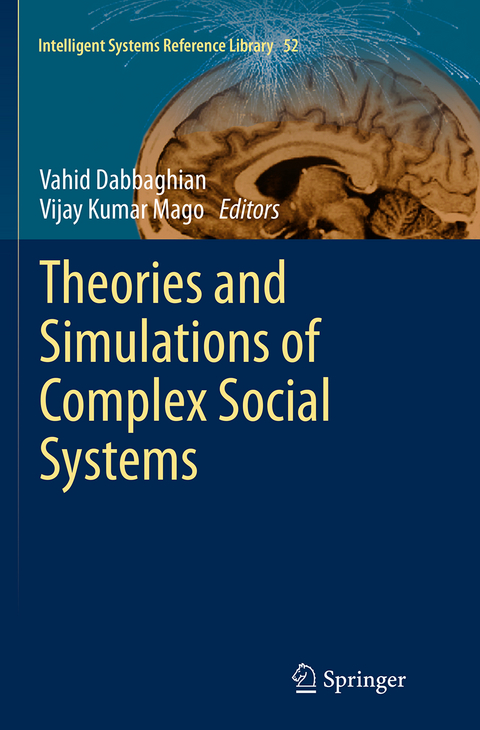
Theories and Simulations of Complex Social Systems
Springer Berlin (Verlag)
978-3-662-52174-8 (ISBN)
Research into social systems is challenging due to their complex nature. Traditional methods of analysis are often difficult to apply effectively as theories evolve over time. This can be due to a lack of appropriate data, or too much uncertainty. It can also be the result of problems which are not yet understood well enough in the general sense so that they can be classified, and an appropriate solution quickly identified. Simulation is one tool that deals well with these challenges, fits in well with the deductive process, and is useful for testing theory. This field is still relatively new, and much of the work is necessarily innovative, although it builds upon a rich and varied foundation. There are a number of existing modelling paradigms being applied to complex social systems research. Additionally, new methods and measures are being devised through the process of conducting research.
We expect that readers will enjoy the collection of high quality research works from new and accomplished researchers.
Introducing Theories and Simulations of Complex Social Systems.- Creating Software for the Simulation of Complex Social Systems.- Modelling Epistemic Systems- Model the human behavior in space and time by mobile phone data.- Change Detection in Dynamic Political Networks: The Case of Sudan.- High-Level Simulation Model of a Criminal Justice System.- Celerity in the Courts: An Application of Fuzzy Logic to Model Case Complexity in the Criminal Justice System.- Understanding the Impact of Face Mask Usage through Epidemic Simulation of Large Social Networks.- e - Epidemic Models on the Attack and Defense of Malicious Objects in Networks.- Modelling the joint effect of social determinants and peers on obesity.- Youth Gang Formation: Basic instinct or something else?.- Optimising an Agent-Based Model to Explore the Behaviour of Simulated Burglars.
| Erscheinungsdatum | 29.08.2016 |
|---|---|
| Reihe/Serie | Intelligent Systems Reference Library |
| Zusatzinfo | X, 204 p. 72 illus. |
| Verlagsort | Berlin |
| Sprache | englisch |
| Maße | 155 x 235 mm |
| Themenwelt | Informatik ► Theorie / Studium ► Künstliche Intelligenz / Robotik |
| Mathematik / Informatik ► Mathematik ► Angewandte Mathematik | |
| Naturwissenschaften ► Physik / Astronomie ► Mechanik | |
| Naturwissenschaften ► Physik / Astronomie ► Optik | |
| Technik | |
| Schlagworte | Artificial Intelligence • artificial intelligence (incl. robotics) • Complex Social Systems • Computational Intelligence • Computational Modelling Techniques • conceptual models • Dynamics and statics • Engineering • Nonlinear Dynamics • Nonlinear Science • Public Health • Public Safety and Security • Robotics • Urban Dynamics |
| ISBN-10 | 3-662-52174-1 / 3662521741 |
| ISBN-13 | 978-3-662-52174-8 / 9783662521748 |
| Zustand | Neuware |
| Informationen gemäß Produktsicherheitsverordnung (GPSR) | |
| Haben Sie eine Frage zum Produkt? |
aus dem Bereich


